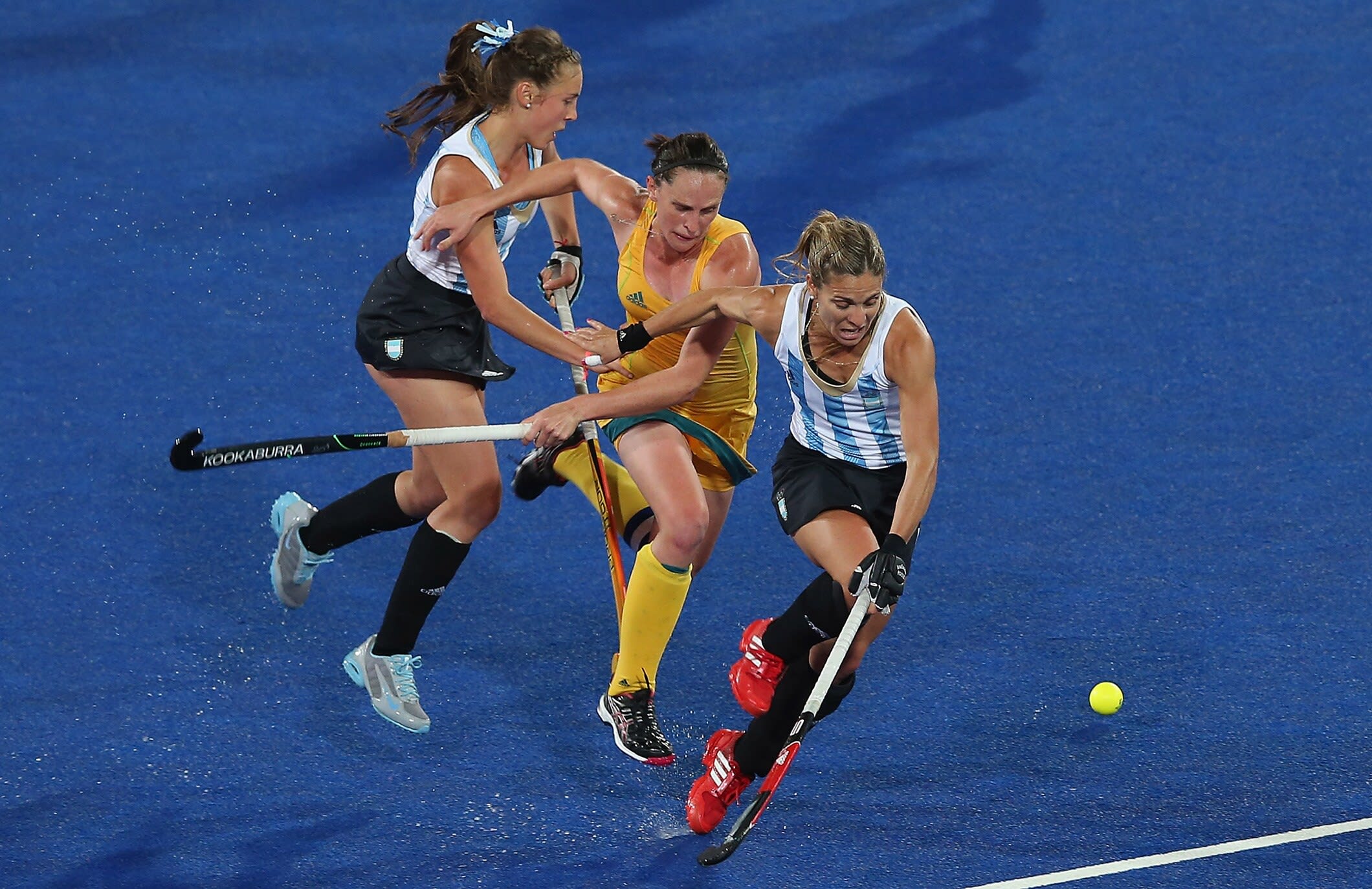Aymar “the magician” reveals how she drove Argentinian hockey to the top
Luciana Aymar is not only the greatest female hockey player of all time; she also transformed the way an entire nation views her sport. It is quite a story and, after 20 years of sacrifice, the 41-year-old and now retired four-time Olympic medal winner is enjoying sharing it.
“There was no outstanding sport for women when I was young. We were divided between tennis, volleyball and gymnastics,” Aymar said. “So, as a group of players and coaches we decided to change the look of our sport. We wanted hockey to be one of the best, most popular sports in the whole country.”
The scope of such ambition was monumental. When the seven-year-old Aymar first picked up a hockey stick, the Argentinian women’s team had never won a hockey World Cup, having reached the final in both 1974 and 1976. But the weight of history was never going to stop the bristling youngster from Rosario, a city 300km up the Paraná River from capital Buenos Aires and also the birthplace of Argentina’s footballing maestro, Lionel Messi.
“When I was 17 years old, I had to travel to Buenos Aires every week to train. I would get up on Sundays at 3 a.m. and take a bus to be in Buenos Aires at 7 a.m., to start training at 8 a.m. sharp,” Aymar recalled, with a laugh. “I came back from Buenos Aires on Thursday to get to my club training on Thursday afternoon. Then I would play on Saturday and go back out on Sunday to Buenos Aires.
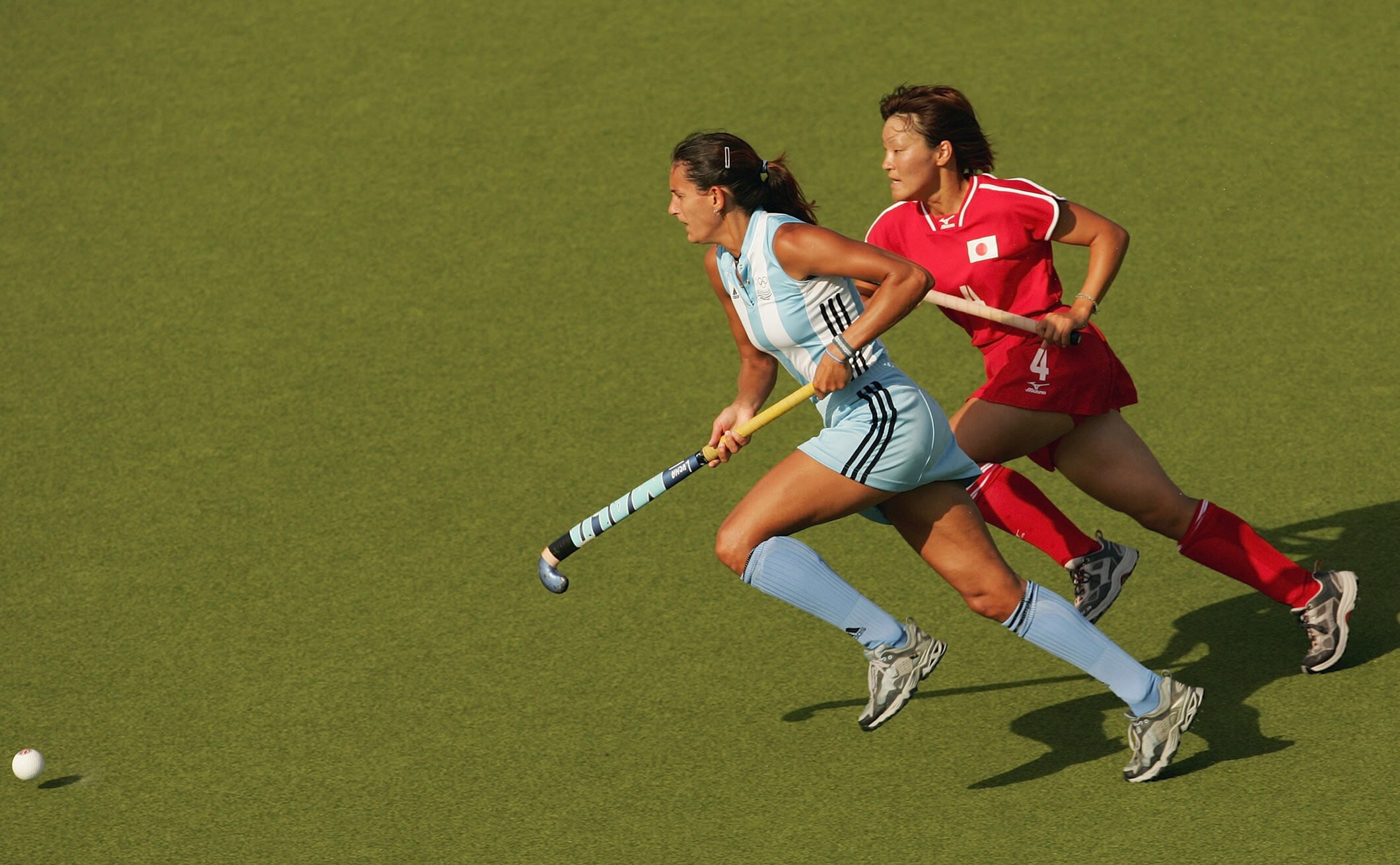
“I did this crazy routine for many years. My head was determined I would be the best player I could be.”
Such dedication was swiftly rewarded. Aged 16, Aymar became the youngest-ever female hockey player to pull on an Argentina shirt for the senior team. And that was when things really started to change.
“The coaches were the ones who imposed the rules. We started training double shifts every day, lifting weights, running marathons with weight vests on, training in the pool and running on the track,” she explained. “The change in our bodies and in our minds was radical. In four years, we created a group of people passionate about hockey with the clear conviction of becoming the best.”
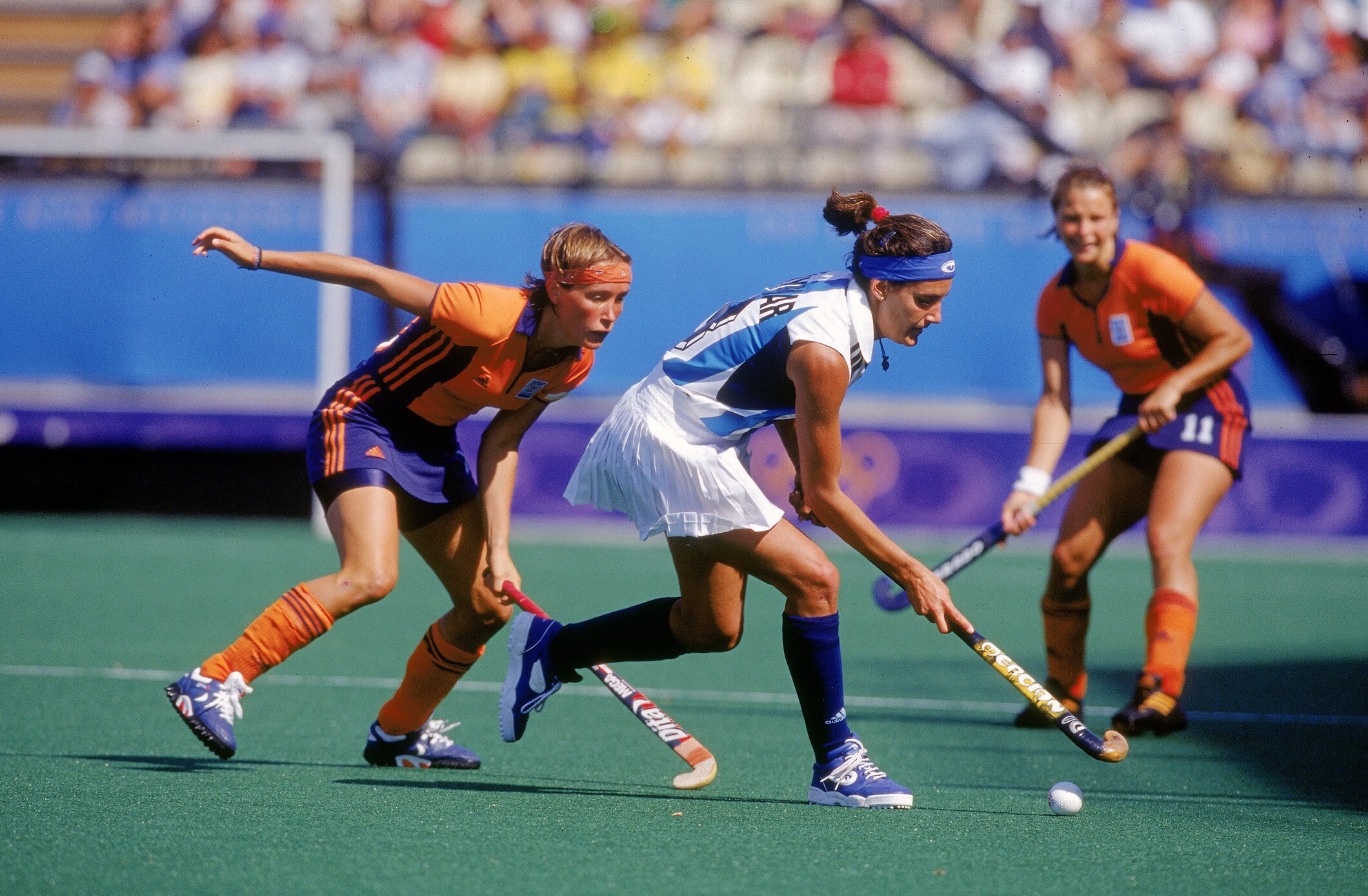
By the time the Olympic Games Sydney 2000 came around, the young, hungry Argentinian women were ready. Sporting T-shirts with lionesses emblazoned on them, the blue and white army powered through the competition, winning five of their seven matches before falling 3-1 to the hosts in the final.
“We became what we aspired to be for so many years, the Lionesses,” Aymar said, the pride at winning silver, her nation’s first-ever Olympic hockey medal, still evident. “The popularity we got was incredible, Argentina recognised all of us.”
On the back of such a wave and fuelled by Aymar’s super-charged talents, the Lionesses began carving their name deeper into the history books. A first Champions Trophy followed in 2001 – the year in which Aymar won the first of a record eight International Hockey Federation (FIH) player of the year awards – and then the big one came in 2002. Led by player of the tournament Aymar, Argentina claimed its first-ever women’s World Cup title.
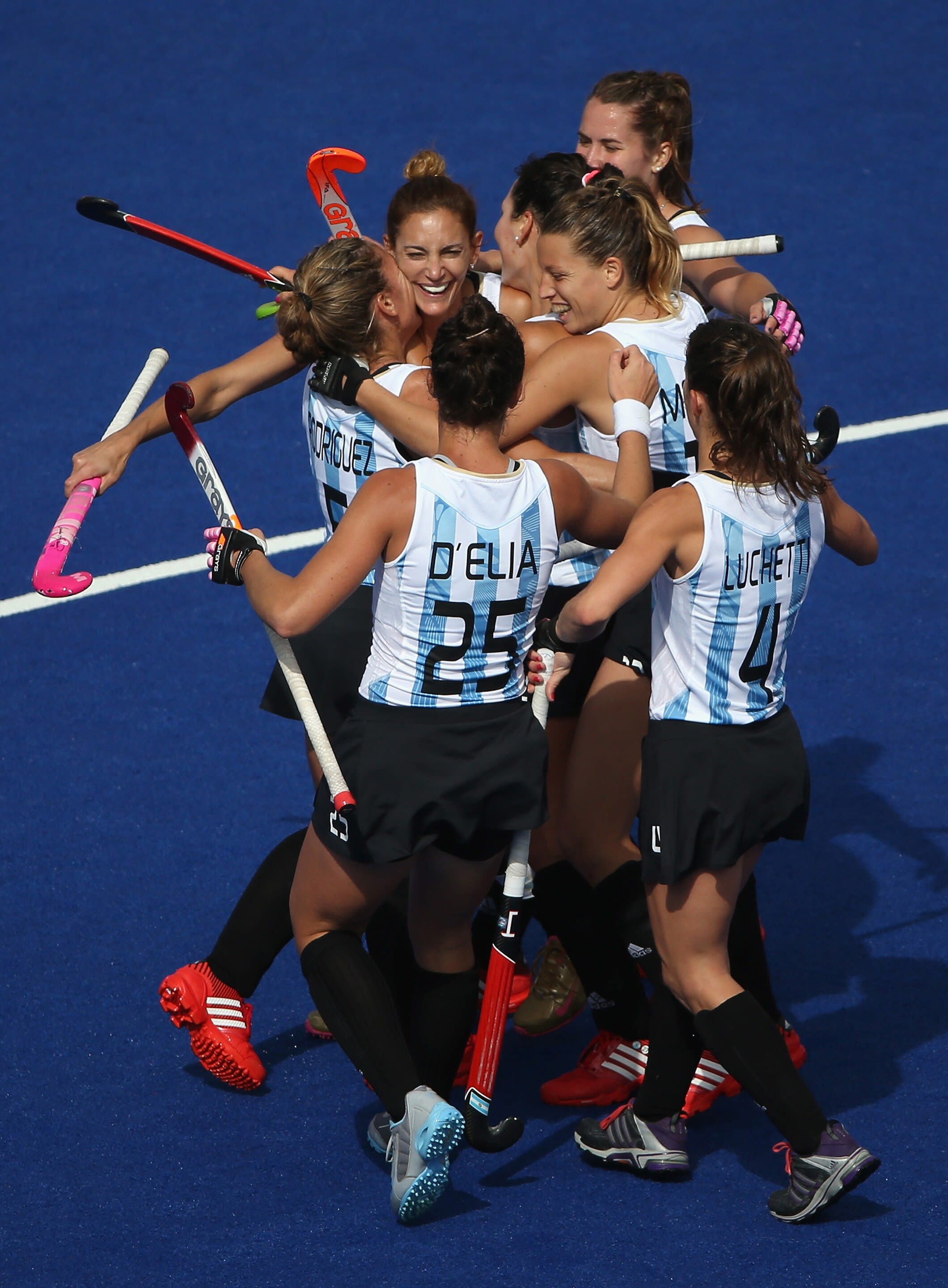
The honours continued to roll in, both for Aymar herself and for her team. Over the course of the next decade, Argentina strode to a further four Champions Trophies, a second World Cup – won in Aymar’s home city – and two Olympic bronze medals. The woman everyone began to refer to as La Maga (the magician) was at the heart of every triumph, hailed by a nation in love with its relentless superstar. Comparisons with Argentina’s most famous of all sporting heroes inevitably followed, with Aymar’s pace and lyrical dribbling abilities likened to the one and only Diego Maradona.
For the Rosario native, who had grown up, like most of her peers, idolising the diminutive striker and attempting to ape his mesmerising twists and turns in the school playground, it was the ultimate accolade.
“There was no pressure at all. For me it was nice to have so much recognition from the media and from the people,” Aymar said. “I will always be grateful to all my team-mates and coaches who always tried to make me the best player. Without them I would not have achieved anything. It was my marriage for 20 years. Being on a pitch gave me happiness.”
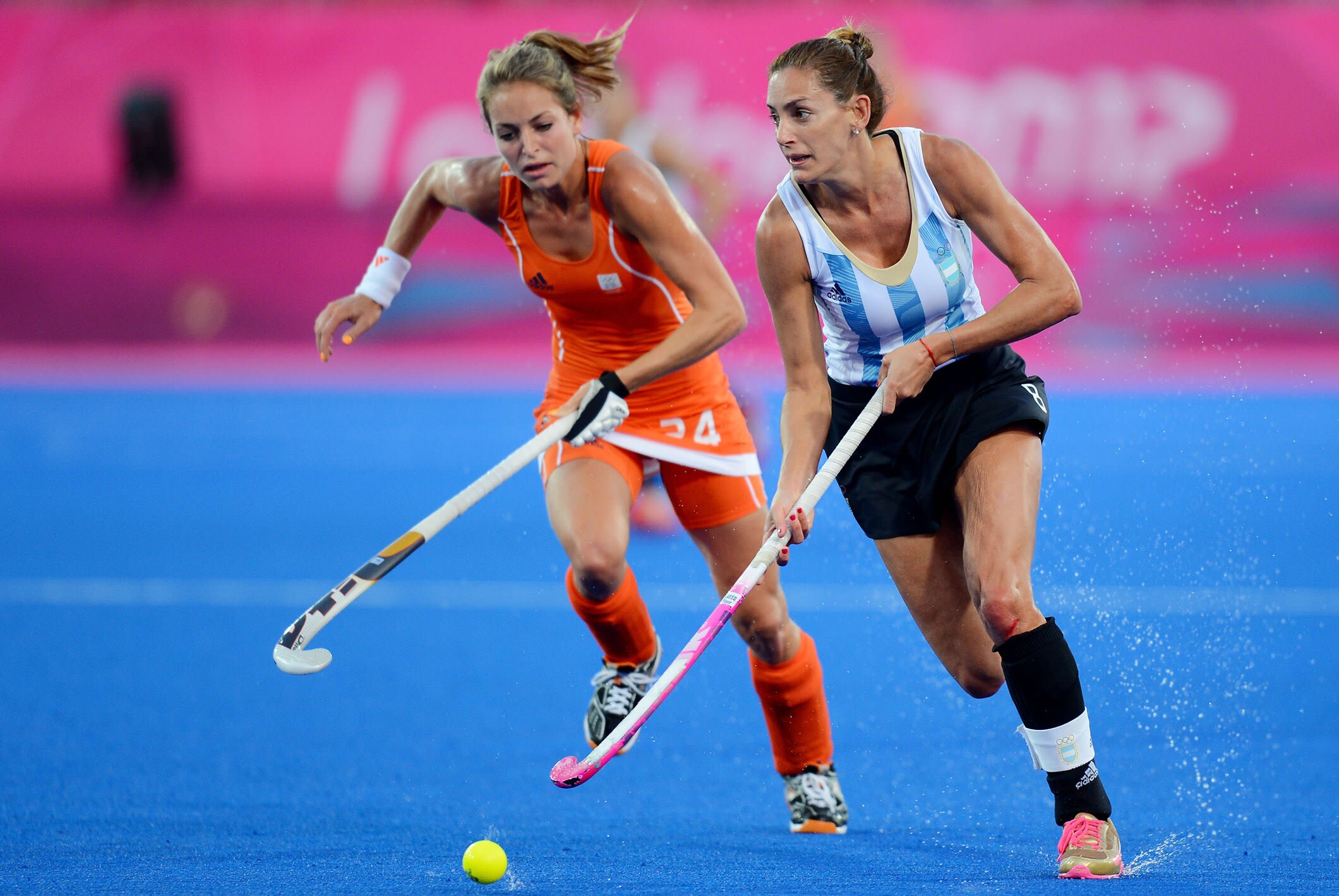
The Olympic Games London 2012 almost provided the perfect swansong for one of hockey’s greatest-ever ambassadors. For the second time in her career, Aymar drove her compatriots to the Olympic final but, for the second time, they came up just short, losing 2-0 to the Netherlands.
While it seems cruel from the outside that Aymar’s talent was not rewarded with the ultimate sporting prize, the woman herself does not view it that way.
“All the Olympic Games that I participated in were incredible. For any athlete, the Olympic Games is the best event because it is different from any other tournament,”
Aymar said. “You share 15 days in an Olympic Village with the best athletes in the world, where everyone is focused on giving their best while enjoying meeting other athletes.
“One of the most beautiful moments for me was to carry the flag at the Olympic Games [Opening Ceremony] in London.”
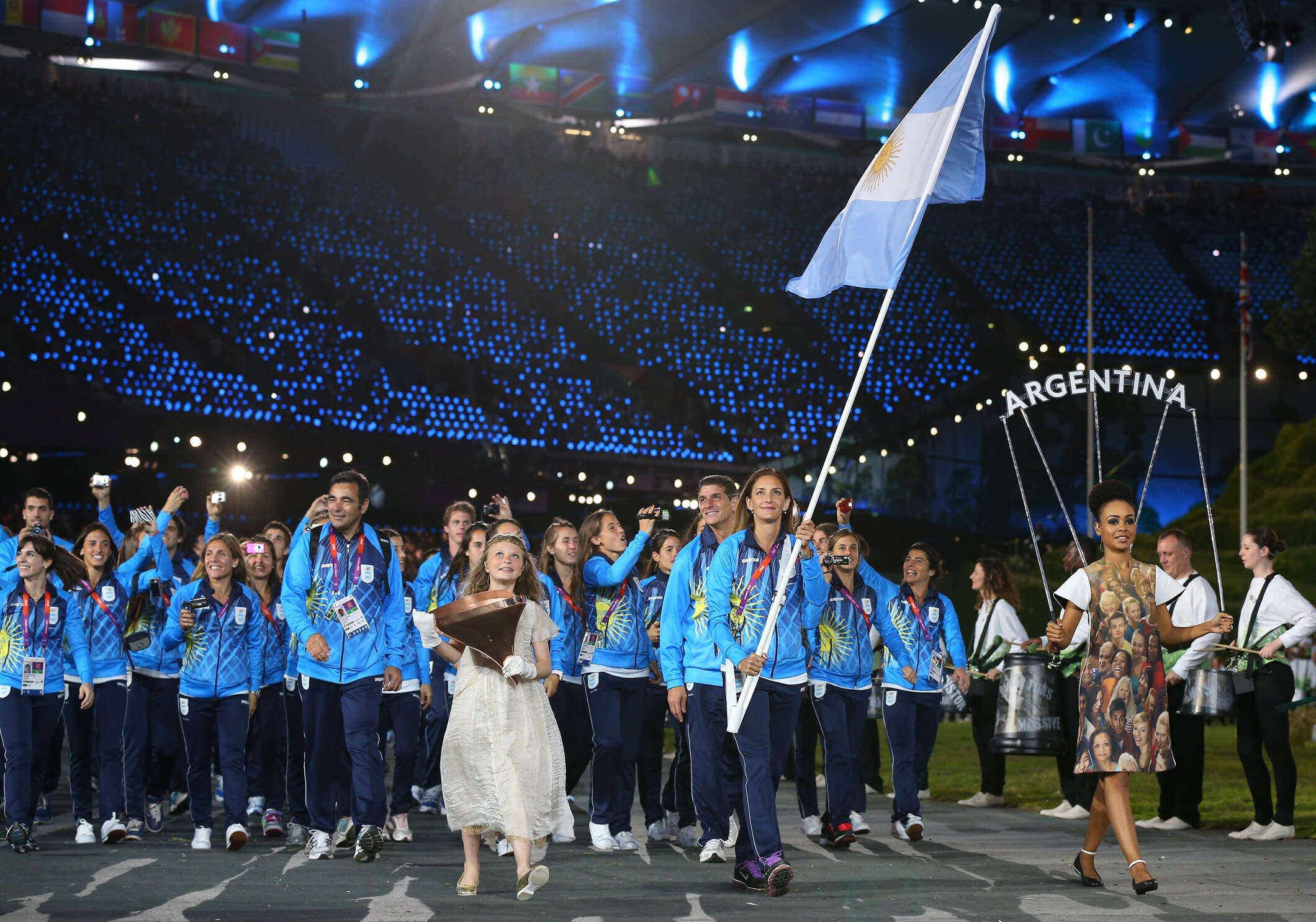
It was an entirely fitting reward for a player who gave so much. As was the honour of being named an Ambassador for the Youth Olympic Games Buenos Aires 2018.
Like other such prestigious roles, it enabled Aymar to continue to inspire generations of young girls, a task to which she is wonderfully suited. Just do not ask her to get back on a hockey pitch, even for fun – her obsessive mentality simply will not allow it.
“Today my energy is set on trying to live a normal life, learning to live in a relationship with another person and not with my sport,” Aymar said with a loud laugh. “When I stopped playing I distanced myself to be able to fully release my sport.”
